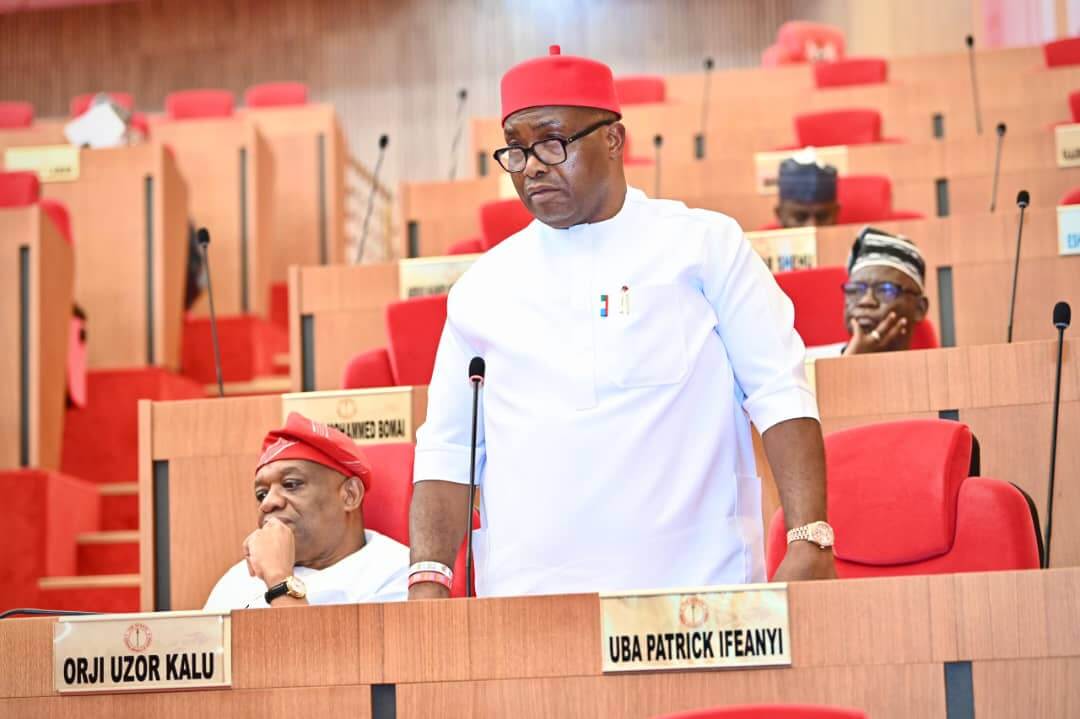Recently, the World Anti-Doping Agency (WADA) listed Nigeria as one of the countries that have failed to comply with its measures to eliminate illegal drug use among athletes. The body blacklisted the country and threatened to ban Nigerian athletes when the case comes up after the Paris 2024 Olympics. Indeed, facts show that ignorance and official apathy to the menace have seen the rise of drug abuse among sportsmen across all disciplines, CHRISTIAN OKPARA writes.
Abubakar Umar rushed into the dressing room’s toilet a few minutes before the kick-off of his club’s National League game. He didn’t visit the Gent’s to relieve himself, rather, he went there to insert a sizable portion of aboniki (local hot balm) into his anus as most of his mates do.
The belief among players from his part of the country is that inserting that balm into their anuses makes them restless and hyperactive all through the duration of a football match. They also believe that the balm makes them fearless and able to kick anything without holding back during a game.
Among southern Nigerian players, smoking raw coffee has become a routine before a game. Like their northern counterparts, they also believe that smoking that raw coffee makes them restless, fearless, and able to do all manner of things in the course of a football match.
Across the country, youths do many ‘crazy’ things in their belief that such things aid them to churn out superlative performance in sports. Drug abuse is a widespread menace that some sportsmen indulge in not knowing the damage that the practice does to them. Because sports have become a multi-billion dollar industry, that rewards excellent athletes, many sportsmen seek ways to enhance their performance to enjoy the humungous benefit that it provides to successful athletes.
With science-producing substances that help athletes to attain great physical abilities and endurance levels, many athletes now rush to use these substances, some of which have been declared illegal by sporting bodies as they encourage unfair competition among athletes.
That is why international bodies have set out rules to ensure that athletes compete fairly and also stay away from drugs that can hurt them in the long run. Unfortunately, Nigeria has been recorded as one of the countries that have treated the use of illegal substances with kid gloves hence the country is among those blacklisted for not complying with anti-doping protocols.
Writing in the International Journal in Management and Social Science, Volume 08 Issue 07 of July 2020, Dr Agharese Efe Aigbovo of the Faculty of Education, University of Benin, described drug abuse as a menace that has bedeviled sports since antiquity till present.
He said: “As athletes of various sports endlessly seek ways to attain improved physical and mental performance and excellence in competitions, quite a significant number get involved in various forms of doping to achieve their set goals.”
He said that sports federations and other stakeholders in the sporting world continued to seek solutions to eradicate the problem of drug abuse among athletes. “It is apparent that drug testing alone is insufficient to combat the menace of illicit drug intake by athletes.
“Educating athletes remains a major way to minimise the problem of doping and eventually eliminate it. Increased funding should be provided to anti-doping agencies to aid them in carrying out testing of athletes.”
Recently, Nigeria has been at odds with the World Anti-Doping Agency (WADA), which accused the country of not doing enough to combat drug abuse among the country’s athletes.
The issue, which is currently subject to adjudication at the Court of Arbitration for Sports (CAS), has led to the suspicion of every Nigerian athlete who steps out to compete in international competitions.
On the eve of the just-concluded Paris 2024 Olympic Games, Nigerian boxer, Cynthia Ogunsemilore, was suspended from participating in the Games when WADA alleged that she took a drug-masking substance to hide some illegal performance-enhancing substances in her system.
Although Ogunsemilore pleaded her innocence, the organisers of the Olympic Games still expelled her from the competition, apparently based on the country’s reputation as one that has refused to join the rest of the world in combating drug abuse.
This came after almost two years of protracted legal battle at the CAS between Nigeria’s star athlete, Tobi Amusan, and World Athletics, which accused the women’s 100m hurdles world record holder of missing several out-of-competition tests, and also not disclosing her whereabouts to the world athletics ruling body.
To get back into the good books of international sporting bodies, Nigeria has since domesticated the WADA protocol in the country’s laws, providing the needed legislation to combat the menace. However experts still say that the country still needs to do much more than enacting a law if it desires a drug-free sporting society.
Former Team Manager of Abia Warriors, Imo Azubuike, told The Guardian that many Nigerian athletes indulge in drug abuse out of ignorance of the long-term damage it does to their lives. Apart from being against laws that guide fair competition, Azubuike said that drug abuse has been fingered in many cases of cardiac arrests suffered by athletes while in action.
A former Media Director of the defunct Dolphins Football Club of Port Harcourt, China Acheru, said that drug abuse among the country’s footballers has risen beyond imagination.
He added that the country’s attitude to enforcement of existing laws helps in increasing the number of users of illicit drugs as there is no monitoring or sanctioning of users of banned substances.
He said: “I believe drug abuse is prevalent in the league, but because of a lack of testing, nothing can be proved. I am aware that players freely smoke Indian hemp, Loud, and the like. They pop pills like Tramadol and drink Codeine to make them hyperactive during games. There are some other things that they take that I don’t know, but followers of the league know that it is common among local league players.
“We know these players, we see them daily, but we do not do testing here because, in a way, it is seen as a normal way of life.” Former junior international athlete, Iruma Ogbonna, said that drug abuse among Nigerian athletes is an age-long menace that takes different dimensions at different ages.
He said: “I can recall those days when the National Stadium, Lagos, was the Mecca of Nigerian sports. After every major local competition like the now-rested Mobil Athletics Championship and the UNIC Insurance Classics, you will find syringes littered all over the stadium, especially near the gym areas. Then, we, the local ones, saw it as stepping up when we used these things.
“But with education, some of us realised that rather than enhancing our lives, taking such substances does a lot of damage to our bodies.” To check the menace, Ogbonna urged the authorities to enforce laws that guide against the use of performance-enhancing drugs to deter the young ones from drug abuse.
“I have heard, although I cannot ascertain if it is true, that an Ilorin-based coach suspended by the Athletics Federation of Nigeria (AFN) for introducing some of his athletes to illegal substances has since returned to his work, and nobody is bothered.
“If that is so, it means that we are not ready to combat drug abuse in sports. Stiffer penalties should be employed to further discourage athletes from involving in illicit drug consumption,” he said.
The Technical Director of the Lagos State Sports Commission (LSSC), Uthman Okunnu, said that many Nigerian athletes continue to indulge in drug abuse due to ignorance.
According to Okunnu, so many athletes see taking performance-enhancing drugs as the norm because they don’t know better.He queried: “Are we saying anything to athletes? What time do we have for general practice and preparation for events? Emphasis should not always be on the training of the athletes. Rather, clubs, associations, and the government should find ways of educating athletes on the dangers of using illegal drugs.
“There are reasons for general preparation. When you only train athletes, do shoddy preparation, and say let’s go, there is a tendency to make mistakes.
“There are reasons for taking approved drugs and medication when the athlete is sick. But you must know who administers the drug, where the athlete stays, and who monitors him. It is a culture. The athlete must have a nutritionist, a psychologist, and a therapist. It is not about drug abuse alone, our sports are in a terrible state.
“When an athlete is discovered to have taken a banned substance, who do you blame? You have to blame the administrators too because they did not do their job on that athlete. You have to also blame the corruption in the country.”
He said some of the athletes are ignorant of what they take because nobody monitors them to ensure they are on the right path. “These athletes are competing under some associations and you ask yourself if these administrators are doing their jobs.
“The administrator must first know these athletes, where they are coming from, and the type of things that they have been exposed to. That is the only way that they can teach the athletes the proper things to do and how to comport themselves.”He urged the federations to take monitoring of athletes seriously, saying that the Federal Ministry of Sports, states’ sports commissions, and the federation have a lot to do to ensure that Nigerian athletes compete cleanly and still excel in their disciplines.
“What are we doing as a nation? Where is the medical team of the Federal Ministry of Sports? Everything now comes from the top to bottom because of the situation in the country; we rely so much on the Ministry of Sports,” he said.
Speaking on the push to eradicate the use of illegal substances, and become compliant with WADA rules, the Media Officer of the Nigeria Olympic Committee (NOC), Tony Nezianya, said that the National Assembly has passed a bill domesticating the WADA protocol.
Nezianya also said that the various federations now know what to do to curb illegal drug use among athletes. On WADA’s case against Nigeria at CAS, he said: “We have presented evidence that we have complied with the rules, and I believe that Nigeria will soon be removed from the list of non-compliant countries.”
Also as part of efforts to ensure that Nigeria’s sports is illegal drug-free, the National Drug Law Enforcement Agency (NDLEA), and the Sports Writers Association Of Nigeria (SWAN), Ondo State Chapter, recently organised a comprehensive sensitisation programme to combat drug abuse among athletes, fans, and the general public.
The sensitisation programme titled, “Drug Abuse- Battling A Menace In Nigerian Sports” brought stakeholders in sports and games including athletes, and coaches together to look for ways of stemming the rising case of drug abuse among athletes in the country.
The Ondo State NDLEA Commander, Mr Kayode Raji, acknowledged that “Drug abuse has destroyed many lives, and it is no longer a distant issue, but one that is now prevalent among us.”
He said the consequences of drug abuse are limitless, adding: “Drug abuse is gradually infiltrating the sports community, and now is the time to step in and sensitise athletes about its dangers.”
Raji highlighted the NDLEA’s commitment to eradicating drug abuse and providing support for those affected. “Preventive measures and support systems are in place, and we are dedicated to ensuring that athletes have the resources and knowledge to avoid the pitfalls of drug abuse.”
QUOTE:
I believe drug abuse is prevalent in the league, but because of a lack of testing, nothing can be proved. I am aware that players freely smoke Indian hemp, Loud, and the like. They pop pills like Tramadol and drink Codeine to make them hyperactive during games. There are some other things that they take that I don’t know, but followers of the league know that it is common among local league players. We know these players, we see them daily, but we do not do testing here because, in a way, it is seen as a normal way of life

 3 months ago
39
3 months ago
39















 English (US) ·
English (US) ·